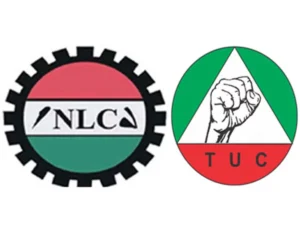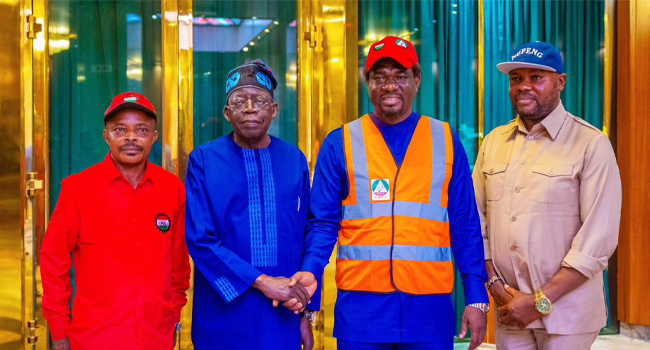President Bola Tinubu is set to meet with the Organised Labour in Abuja on Thursday to continue discussions on a new minimum wage for Nigerian workers.
According to a top labour source, the President has invited the leadership of the Nigeria Labour Congress (NLC) and the Trade Union Congress (TUC) to the meeting, which will be held at the Aso Villa in Abuja.
During the meeting, the President is expected to address the government’s and private sector’s ₦62,000 minimum wage proposal, as well as the Organised Labour’s ₦250,000 demand.
This upcoming meeting follows President Tinubu’s Democracy Day speech on June 12, 2024, in which he announced that an executive bill on the new national minimum wage would soon be presented to the National Assembly.
On June 25, the Federal Executive Council (FEC), chaired by President Tinubu, decided to delay deliberations on the new minimum wage memo to allow for further stakeholder engagement.
Two days later, during the 141st meeting of the National Economic Council (NEC), President Tinubu and Vice President Kassim Shettima met with governors from the 36 states and ministers to discuss the new minimum wage.
Negotiations for a new minimum wage have been ongoing for some time. The Minimum Wage Act of 2019, which set the minimum wage at ₦30,000, expired in April 2024. This Act requires a review every five years to align with contemporary economic demands.
In January, President Tinubu established a Tripartite Committee to negotiate a new minimum wage. The committee includes representatives from Organised Labour, federal and state governments, and the Organised Private Sector.
Despite these efforts, the committee has not reached an agreement on a realistic new minimum wage. This impasse led Organised Labour to declare an indefinite industrial action on Monday, June 3, 2024.
This strike caused significant disruptions, shutting down airports, hospitals, the national grid, banks, the National Assembly, and state assemblies.

Labour unions argue that the current minimum wage of ₦30,000 is insufficient to support the average Nigerian worker.
They are urging the government to propose a wage that reflects the current economic realities, considering inflationary pressures and the impact of recent policies, such as the removal of petrol subsidies and the unification of forex windows.




